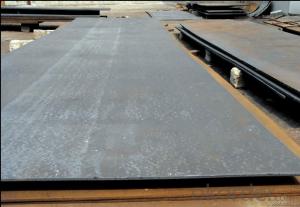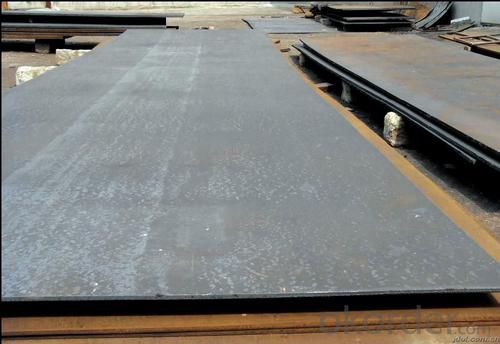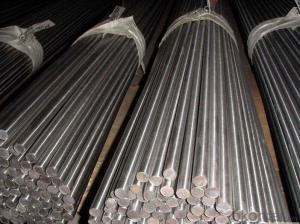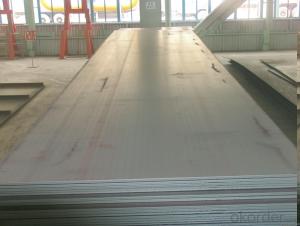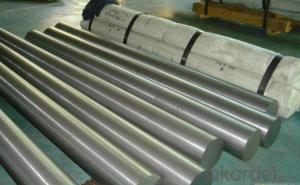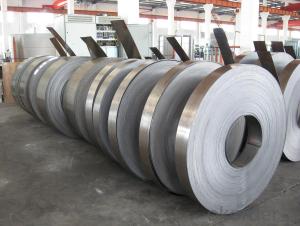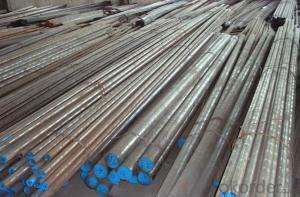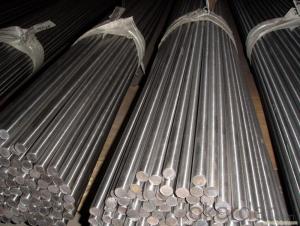Special Steel DIN 55Cr3 Spring Steel Plate
- Loading Port:
- China main port
- Payment Terms:
- TT OR LC
- Min Order Qty:
- 30 m.t.
- Supply Capability:
- 10000 m.t./month
OKorder Service Pledge
OKorder Financial Service
You Might Also Like
Specification
Product information:
steel grade | chemical composition(%) | ||||
C | Si | Mn | Cr | Others | |
65 | 0.62~0.70 | 0.17~0.37 | 0.50~0.80 | ≤0.25 | |
70 | 0.62~0.75 | 0.50~0.80 | ≤0.25 | ||
85 | 0.82~0.90 | 0.50~0.80 | ≤0.25 | ||
65Mn | 0.62~0.70 | 0.90~1.20 | ≤0.25 | ||
55Si2Mn | 0.52~0.60 | 1.50 ~2.00 | 0.60~0.90 | ≤0.35 | B 0.0005~0.0040 |
55Si2MnB | 0.52~0.60 | 0.60~0.90 | ≤0.35 | ||
60Si2MnA | 0.56~0.64 | 0.60~0.90 | ≤0.35 | ||
55SiMnVB | 0.52~0.60 | 0.70~1.00 | 1.00~1.30 | ≤0.35 | V 0.08~0.16 B 0.0005~0.0035 |
60Si2MnA | 0.56~0.64 | 1.60~2.00 | 0.60~0.90 | ≤0.35 | |
60Si2CrA | 0.56~0.64 | 1.40~1.80 | 0.40~0.70 | 0.70~1.00 | |
60Sii2CrVA | 0.56~0.64 | 0.40~0.70 | 0.90~1.20 | V 0.10~0.20 | |
55CrMnA | 0.52~0.60 | 0.17~0.37 | 0.65~0.95 | 0.65~0.95 | |
60CrMnA | 0.56~0.64 | 0.70~1.00 | 0.70~1.00 | ||
60CrMnMoA | 0.56~0.64 | 0.70~1.00 | 0.70~0.90 | Mo 0.25~0.35 | |
50CrVA | 0.46~0.54 | 0.50~0.80 | 0.80~1.10 | V 0.10~0.20 | |
60CrMnBA | 0.56~0.64 | 0.70~1.00 | 0.70~1.00 | B 0.0005~0.0040 | |
30W4Cr2VA | 0.26~0.34 | ≤0.40 | 2.00~2.50 | V 0.50~0.80 | |
Product Show:
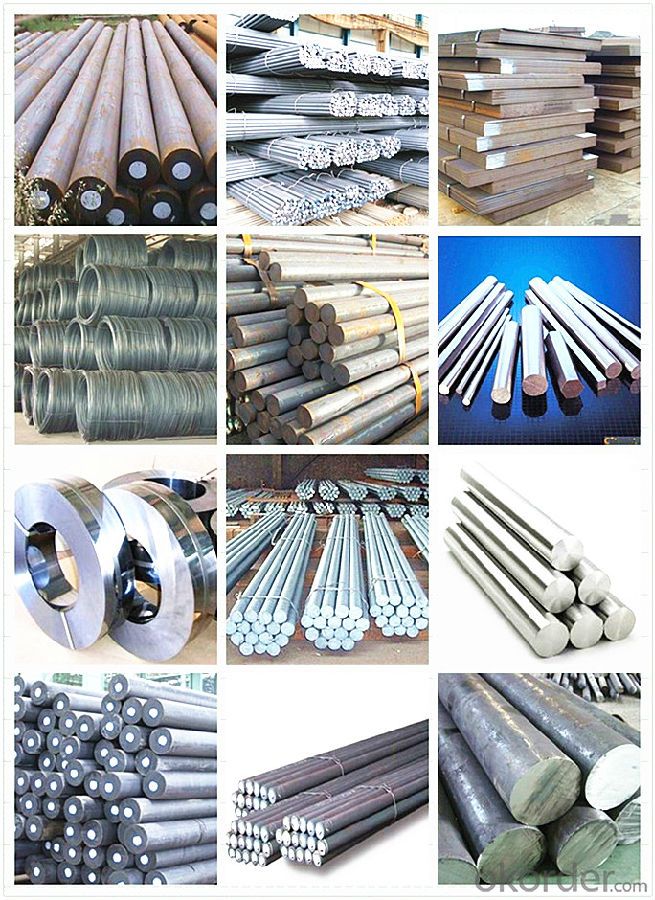
Workshop Show:
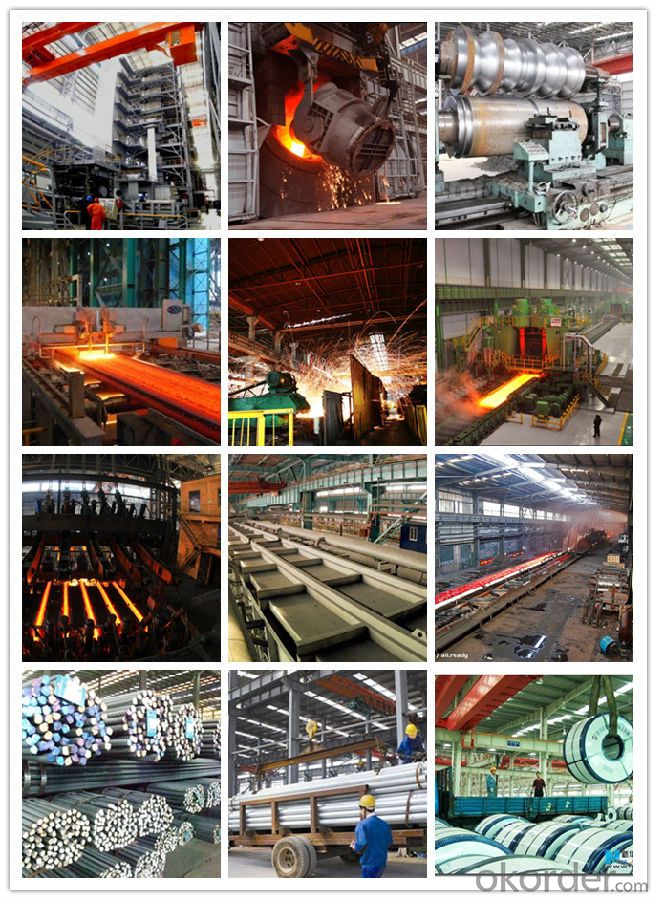
Shipping
1. FedEx/DHL/UPS/TNT for samples, Door-to-Door;
2. By Air or by Sea for batch goods, for FCL; Airport/ Port receiving;
3. Customers specifying freight forwarders or negotiable shipping methods!
Delivery Time: 3-7 days for samples; 5-25 days for batch goods.
Payment Terms
1.Payment: T/T, L/C, Western Union, MoneyGram,PayPal; 30% deposits; 70% balance before delivery.
2.MOQ: 1pcs
3.Warranty : 3 years
4.Package Informations: 1) EXPORT, In 20 feet (GW 25 ton) or 40 feet Container (GW 25 ton)
2)as customer's requirement
Why choose us?
(1) The leading exporter in China special steel industry.
(2) Large stocks for various sizes, fast delivery date.
(3) Good business relationship with China famous factories.
(4) More than 7 years steel exporting experience.
(5) Good after-sales service guarantee.
- Q: Can special steel be used in the automotive parts manufacturing industry?
- Yes, special steel can be used in the automotive parts manufacturing industry. Special steel is often used in the production of critical automotive components, such as engine parts, transmission systems, and suspension components, due to its high strength, durability, and resistance to wear and corrosion. Special steel alloys, such as stainless steel and alloy steel, offer superior mechanical properties and performance characteristics, making them ideal for manufacturing automotive parts that require high performance and reliability.
- Q: How does special steel contribute to the weldability of products?
- The weldability of products is improved in various ways by special steel. Firstly, special steel is designed specifically to have enhanced weldability characteristics, making it easier for welders to join different pieces of steel. This is achieved by carefully controlling the chemical composition of the steel, ensuring that it contains the necessary alloying elements and impurity levels to promote good weldability. Secondly, special steel often has a lower carbon content compared to regular steel, reducing the likelihood of weld metal cracking. Carbon is known to increase the susceptibility to cracking during welding, so by decreasing the carbon content, special steel reduces this risk, resulting in a stronger and more durable weld joint. Furthermore, the weldability of special steel is improved by controlling the grain size and microstructure. Fine-grained steel exhibits better toughness and reduced brittleness, making it less prone to cracking during welding. Similarly, a well-controlled microstructure ensures a more uniform distribution of alloying elements, leading to improved mechanical properties and weldability. To further enhance its weldability, special steel often undergoes various heat treatment processes. Annealing, normalizing, or quenching and tempering can refine the microstructure, relieve residual stresses, and improve the toughness of the steel, all of which contribute to better weldability. In addition, special steel is carefully manufactured to have low levels of impurities, such as sulfur and phosphorus, which can negatively affect weldability. By minimizing these impurities, the steel can be welded without the formation of detrimental welding defects, ultimately improving the overall quality of the weld. In conclusion, special steel plays a crucial role in enhancing the weldability of products. Its carefully controlled chemical composition, reduced carbon content, controlled grain size and microstructure, as well as the application of heat treatments, all contribute to easier, stronger, and more reliable weld joints.
- Q: What are the properties of free-cutting steel?
- Free-cutting steel is characterized by its high machinability, which means it can be easily and efficiently machined into various shapes and sizes. It has excellent chip breaking properties, resulting in reduced tool wear and improved surface finish during machining operations. Free-cutting steel also has good formability, allowing it to be easily shaped and fabricated. Additionally, it exhibits high strength and good corrosion resistance, making it suitable for a wide range of applications in industries such as automotive, aerospace, and machinery manufacturing.
- Q: How is electrical resistance steel used in heating elements?
- Electrical resistance steel is used in heating elements due to its high resistivity. When an electric current passes through this steel, it encounters resistance, which causes the steel to heat up. This heat is then transferred to the surrounding environment, allowing the heating element to generate and maintain a desired temperature.
- Q: What are the different joining methods used for special steel?
- The different joining methods used for special steel include welding, soldering, brazing, and mechanical fastening. Welding involves melting the base metal and adding a filler material to create a strong bond. Soldering and brazing use lower temperatures to join the steel using a filler material with a lower melting point. Mechanical fastening methods include bolts, nuts, screws, and rivets, which provide a secure connection without altering the base metal's properties.
- Q: Can special steel be used for musical instruments?
- Yes, special steel can be used for musical instruments. In fact, many high-quality instruments such as saxophones, trumpets, and guitars are made using different types of steel. Special steel alloys like stainless steel or nickel silver offer unique tonal qualities and durability, making them suitable for producing musical instruments with excellent sound projection and longevity.
- Q: Can special steel be used in mining applications?
- Yes, special steel can be used in mining applications. Special steel alloys are often utilized in mining equipment and machinery due to their high strength, durability, and resistance to wear and corrosion. These properties make them suitable for withstanding the harsh and demanding conditions found in mining operations.
- Q: How does special steel contribute to the transportation industry?
- Special steel contributes to the transportation industry by providing high-strength, lightweight, and corrosion-resistant materials for various applications. It is used in the manufacturing of automobile bodies, engine components, and structural parts, enabling vehicles to be more energy-efficient, durable, and safe. Additionally, special steel is utilized in the production of aircraft parts, railway tracks, and shipbuilding, enhancing the performance, reliability, and longevity of these modes of transportation.
- Q: How is high-speed tool steel used in the production of machining tools?
- High-speed tool steel is used in the production of machining tools due to its exceptional hardness and ability to retain its cutting edge even at high temperatures. This steel is used to create tool bits, inserts, and drill bits that are capable of withstanding the high speeds and forces involved in machining processes. Its high wear resistance and heat resistance properties make it an ideal choice for manufacturing cutting tools that can efficiently shape and form various materials during machining operations.
- Q: What is special steel? What is special steel?
- There is no uniform definition and concept for special steel at present.It is generally believed that special steel is a kind of steel with special alloy composition, special process smelting and production, special organization and performance, and special requirement.Compared with ordinary steel, special steel has higher strength and toughness, physical properties, chemical properties, biocompatibility and process performance.
Send your message to us
Special Steel DIN 55Cr3 Spring Steel Plate
- Loading Port:
- China main port
- Payment Terms:
- TT OR LC
- Min Order Qty:
- 30 m.t.
- Supply Capability:
- 10000 m.t./month
OKorder Service Pledge
OKorder Financial Service
Similar products
Hot products
Hot Searches
Related keywords
